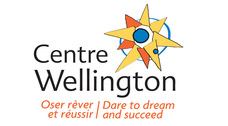2012-07-24

Affiliated with the Douglas, the Wellington Centre provides services to users referred by a CSSS or Douglas health care professional. Bartholomew (Barry) Crago, Clinical-Administrative Chief of the Psychosocial Rehabilitation and specialized Housing Program, paints a portrait of the Wellington Centre after four years of positive change.
Why does the Douglas refer clients to the Wellington Centre?
Barry Crago: The Centre's mission is to have users actively participate in their own journey towards recovery. We try to break social isolation by organizing a range of creative activities—music, art, woodworking, sculpture—or even simple get-togethers around a good meal. Beyond this social aspect, our clients can find a purpose in life thanks to peer discussions and group therapy.Finally, we help these clients along the road to getting a high-school diploma, job training or a job placement, and career counselling.
How are your services consistent with trends in psychosocial rehabilitation?
B. C.: Our work is based on best practices in rehabilitation: an expanded role for peer experts, personal recovery and fighting stigma surrounding mental illness.
Current research indicates that peer-led activities, a role for peer experts, and the integration of peers in decision making all help participants feel empowered. Ultimately, these practices reduce the use of traditional psychiatric services. This is why we emphasize the role of peer experts and consult participants as much as possible about the development of our program.
In terms of personal recovery, the Wellington Centre is a safe place where individuals can explore their social reintegration and reclaim a role in society. We help them achieve this by creating environments that foster self-exploration through artistic creation as well as activities led by a staff member or peer expert.
We also try to counter the stigma associated with mental illness. The best way to break down this stigma is by getting Wellington Centre users involved through important roles in community activities. We try to create partnerships with community organizations and encourage users to explore their environment.
What are your biggest challenges?
B. C.: I would say that the challenges of the Wellington Centre are those of our clients. We want to help them become more self-confident and become actively and concretely engaged in their own recovery. We also want to provide them with more support in the recovery process.
To achieve this goal, we need to better understand the needs of our clientele and our community partners and make sure they become stakeholders in service planning.
How do you plan on overcoming these challenges?
B. C.: Over the past four years, we have improved our services, starting with an expanded role for the peer expert. The Wellington Centre is also known for its community art exhibits, such as the recent "Parle-moi d'amour" exhibit and auction. This event showcased artwork by Les Impatients created during workshops at the Wellington Centre, along with pieces from recognized Quebec artists and artists from Verdun. We also work with Empreintes d'Artistes and the Borough of Verdun during Wellington Street festivities held in June. Another source of pride is the Wellington boutique: this unique store, which is staffed by users, sells artisan pieces hand-crafted at the Centre and other mental health organizations.
The Wellington Centre also benefits from many social partnerships, for example, with the Réseau d’Entraide Verdun, which lets users participate in community activities that address issues of solidarity and freedom from hunger.
Finally, we have created platforms to let users advise and communicate with professionals. These include The Wellington Sun, the Wellington Blog and the Change-Leadership Committee.
When we consulted users two years ago through the Change-Leadership Committee, we were told that the Centre was outdated and at arm's length from the community. We wanted to do something to show we were embarking on a new initiative, that we were ready to Dare to Dream and Succeed.
“Dare to Dream and Succeed.” Is this the Centre's new tagline?
B. C.: Yes. The Change-Leadership Committee identified the values we have at the Wellington Center, and “Dare to Dream and Succeed” was the most important. We also held a contest and asked users to create a new logo for the Wellington Centre. The logo we chose resembles a star or sun, which reflects The Wellington Sun, our user-written
newsletter. To us, the logo symbolizes our goal to participate in the journey towards recovery.
A few facts about the Wellington Centre
- 12 Douglas professionals
- 4 teachers*
- 2 workshop leaders
- 1 music therapist
- 550 participants per year
* Available through partnerships with local school boards.


